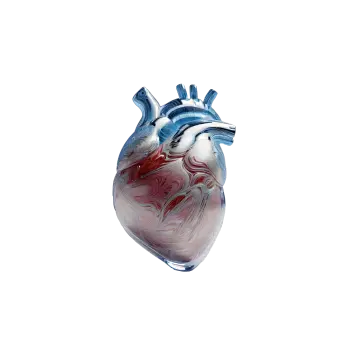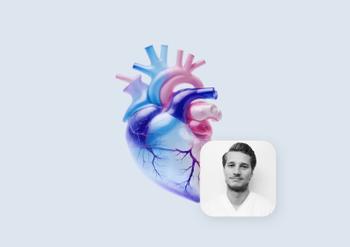What is a heart attack?
A heart attack, also known as myocardial infarction, occurs when blood flow to the heart muscle is blocked, usually due to a blood clot in a coronary artery that supplies oxygen to the heart. When the blood cannot pass through, it leads to oxygen deprivation in the heart muscle, causing the tissue to begin dying. Quick medical treatment is crucial to limit damage and increase chances of survival.
What does a heart attack feel like?
The symptoms of a heart attack can vary between individuals, but the most common is a strong, persistent pain or pressure in the chest. The pain may spread to other parts of the body, such as the arms, back, neck, jaw, or stomach. Many describe the sensation as a heavy pressure on the chest. It is important to understand that symptoms may differ depending on gender, age, and other factors.
Why do heart attacks occur?
Heart attacks are most often caused by atherosclerosis, a process in which plaque, consisting of fat, cholesterol, and other substances, builds up in the arteries and reduces blood flow. When a piece of the plaque breaks off, it can cause a blood clot that completely blocks blood flow, leading to a heart attack. Risk factors include smoking, high blood pressure, high cholesterol, diabetes, obesity, and physical inactivity. Genetics can also play a role.
Symptoms of a heart attack
- Pain or pressure in the chest that can spread to the arms, neck, jaw, or back
- Shortness of breath
- Nausea or vomiting
- Cold sweats
- Dizziness or weakness
- Irregular heartbeat
It is crucial to seek medical care immediately if you suspect a heart attack. The earlier treatment begins, the better the chances of reducing damage to the heart.
Heart attacks in women
Heart attack symptoms can differ in women compared to men. Women often experience more diffuse and less typical symptoms, which can lead to heart attacks in women being overlooked or misinterpreted. Some of the more common symptoms in women include:
- Pain or discomfort in the upper body without chest pain
- Unusual fatigue that doesn’t go away with rest
- Shortness of breath
- Nausea and vomiting
- Dizziness or fainting
Due to these more subtle symptoms, it is important for women to be aware of their risk for heart attacks and seek care if they experience unusual physical changes.
Heart attacks in men
In men, symptoms are often more typical and primarily include chest pain or pressure that may radiate to the left arm. Men also often experience cold sweats, dizziness, and irregular heartbeats during a heart attack. It is important that men do not ignore these symptoms, especially when combined with risk factors such as high blood pressure or smoking.
What can you do?
Recognizing the symptoms of a heart attack and seeking help quickly can save lives. If you experience any of these symptoms, do not hesitate to contact medical care immediately. Early diagnosis and treatment are key to minimizing heart damage and improving recovery chances. It is also important to monitor risk factors and take preventive measures to reduce the risk of heart attacks.























